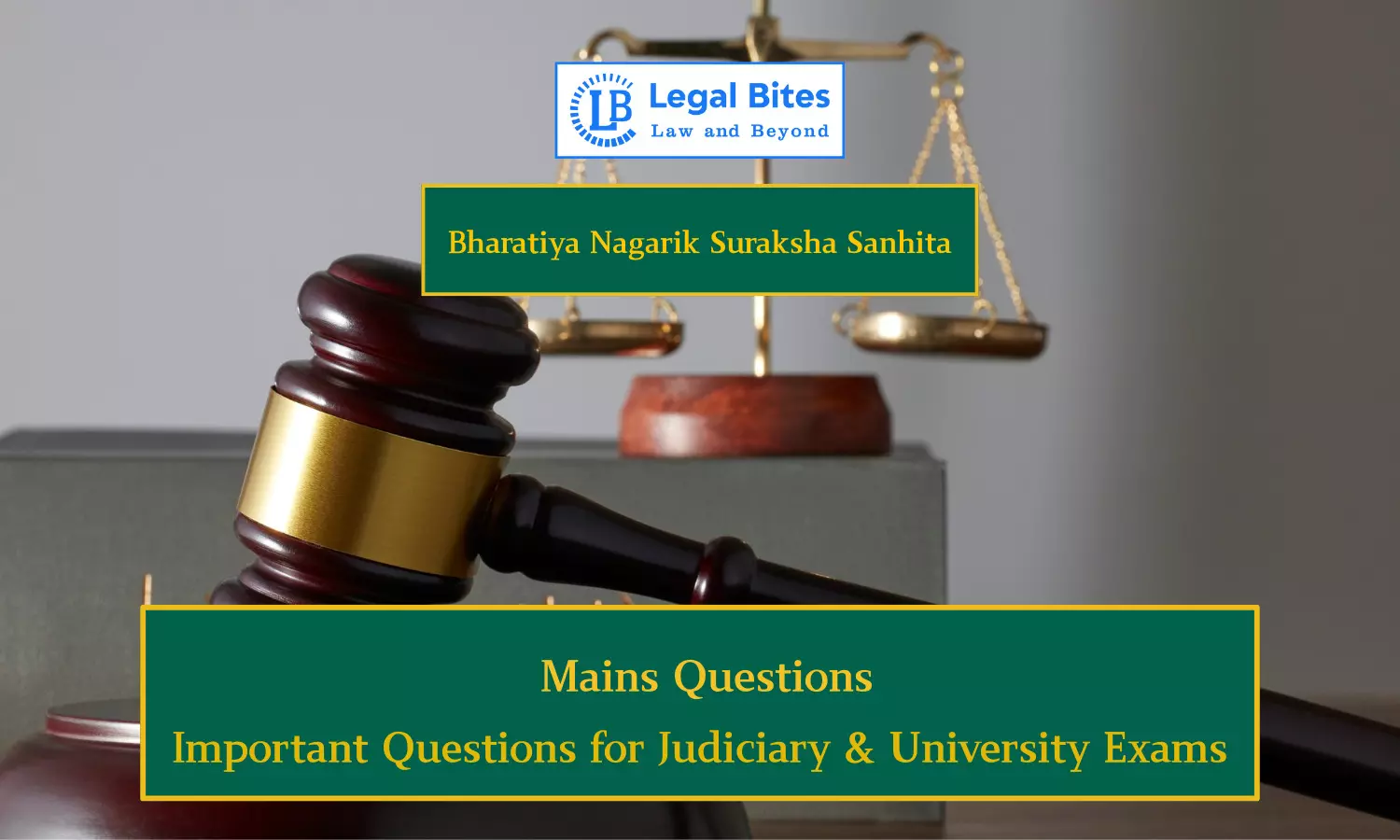What powers of control have Sessions Courts over subordinate courts?
Find the answer to the mains question only on Legal Bites.

Question: What powers of control have Sessions Courts over subordinate courts? [OJS 2019]Find the answer to the mains question only on Legal Bites. [What powers of control have Sessions Courts over subordinate courts?]Answer The Sessions Court serves as the court of first instance in cases involving serious criminal offences and acts as the immediate supervisory authority over subordinate courts within a district. Under Section 13 of the Bharatiya Nagarik Suraksha Sanhita, 2023 (BNSS),...
Question: What powers of control have Sessions Courts over subordinate courts? [OJS 2019]
Find the answer to the mains question only on Legal Bites. [What powers of control have Sessions Courts over subordinate courts?]
Answer
The Sessions Court serves as the court of first instance in cases involving serious criminal offences and acts as the immediate supervisory authority over subordinate courts within a district. Under Section 13 of the Bharatiya Nagarik Suraksha Sanhita, 2023 (BNSS), all Judicial Magistrates in a district are subordinate to the Chief Judicial Magistrate (CJM), who, in turn, is under the subordination of the Sessions Judge. This establishes a clear chain of command and judicial oversight within the district judiciary.
In addition to its original criminal jurisdiction, the Sessions Court exercises supervisory and revisional powers to ensure the proper functioning of Magistrate Courts. This includes the authority to inspect court proceedings, assess delays and pendency of cases, and ensure adherence to legal procedures. The court is also empowered to take corrective measures to maintain the integrity and efficiency of the trial process.
Under Section 438 of the BNSS, the Sessions Court has the power to hear revisions and appeals arising from orders passed by Magistrates. This allows the Sessions Judge to assess whether such orders are legally sound and procedurally correct. Furthermore, the court may direct the execution or suspension of sentences, thereby playing a critical role in the implementation and review of trial outcomes.
Section 439 of the BNSS further enhances the revisional jurisdiction of the Sessions Court (and High Court), empowering it to order an inquiry where a Magistrate has dismissed a complaint under Section 226 or under sub-section (4) of Section 227. These provisions ensure that complaints are not arbitrarily dismissed without due inquiry, thereby safeguarding access to justice.
Additionally, Section 440 of the BNSS empowers the Sessions Judge to exercise all the revisional powers that the High Court may exercise under Section 442(2), thus reinforcing the Sessions Court’s role as a crucial check on the lower judiciary. This helps in maintaining uniformity in the administration of justice and prevents the misuse of legal procedures.
While Article 235 of the Constitution of India vests the High Court with administrative control over the subordinate judiciary—including appointments, postings, and disciplinary matters—the Sessions Court plays an essential supervisory role at the district level. It ensures that the directives of the High Court are implemented effectively and that justice is delivered in a timely and proper manner.
This dual role of the Sessions Court—as both a trial court and a supervisory authority—was recognised by the Allahabad High Court in Raj Pal Singh v. State of U.P. (2003). The Court observed that the Sessions Judge is not merely a trial judge but a vital supervisory figure in the judicial hierarchy. The judgment reaffirmed that the Sessions Court has an obligation to correct procedural irregularities and ensure that subordinate courts function within the framework of law.
In conclusion, the Sessions Court holds a pivotal position in the Indian criminal justice system under the BNSS. Its judicial and supervisory powers ensure procedural compliance, rectify lower court errors, and promote consistency across the judicial system at the district level.

Mayank Shekhar
Mayank is an alumnus of the prestigious Faculty of Law, Delhi University. Under his leadership, Legal Bites has been researching and developing resources through blogging, educational resources, competitions, and seminars.
